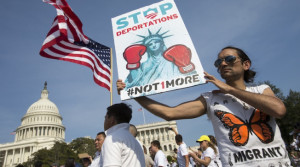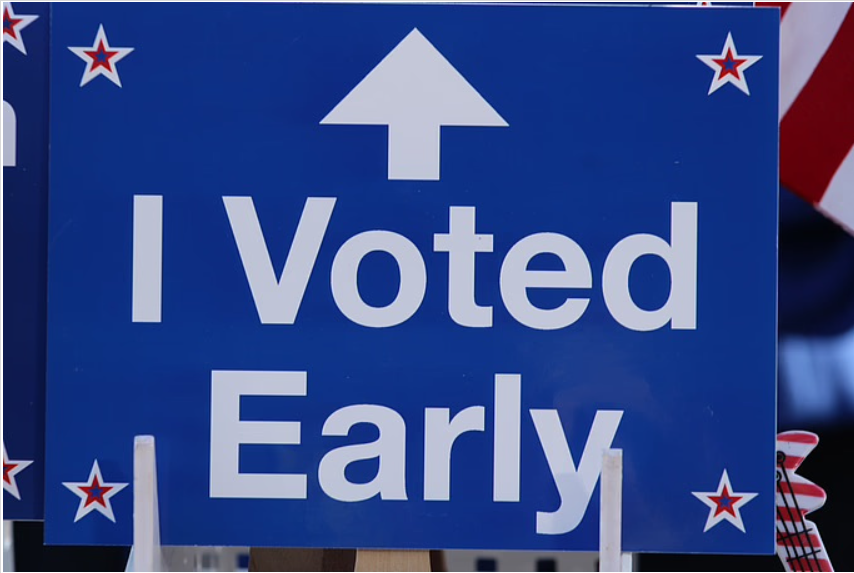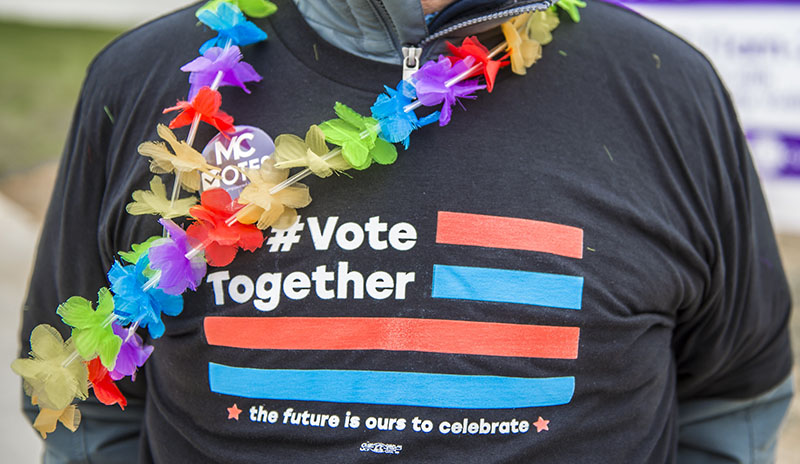
As President Barack Obama made his decision to delay immigration reform, masses broadcasted ludacris explanations and reactions to the postponed executive action expected in late summer.
The decision to push reform until after the November elections was in part to “take this issue away from those who would use it to score points as a kind of grandstanding issue,” said the White House official.
“But the decision to simply delay this deeply controversial and possibly unconstitutional unilateral action until after the election–instead of abandoning the idea altogether–smacks of raw politics,” said the top House Republican.
The President urged House Republicans to pass a bill in order to relieve their concern of his executive actions, instead of ignoring the problem and just saying, “no.”
“What I’m saying is that I’m going to act because it’s the right thing for the country,” said the president in a statement on CNN. “ [I]t’s going to be more sustainable and more effective if the public understands what the facts are on immigration, what we’ve done on unaccompanied children, and why it’s necessary.”
In 2012, Obama took executive action to release the Deferred Action for Childhood Arrivals (DACA) program, which allowed children brought to the U.S. illegally to apply for work permits and be exempt from possible deportation.
After having provided the necessary paperwork to the program, those granted Deferred Action also get the benefit of the system restricting their chances of acquiring unlawful status for two years.
The executive action taken in 2012 was partially due Congress’s decision to not consider the DACA program, as it remains the issue today. Where in addition, House Republicans refused to consider bills concerning reform.
While there are multiple powers that need to cooperate and collaborate with one another to effectively pass a bill, many play the “blame game,” pointing fingers solely at the president.
Pro- immigration groups such as United We Dream, displayed a message saying Obama “has further cemented his legacy as the #DeporterInChief by delaying the usage of his executive authority to stop the deportation of millions of immigrants.”
“The president’s latest broken promise is another slap to the face of the Latino and immigrant community,” a member of the group commented. It is comments such as these that fail to communicate the politics of the situation, in addition to the fact that reform cannot and will not happen overnight.
The statement that distinguished “Latino” from “immigrant community” comes off as a way of communicating that Latino’s are in a way, more affected by the delay on reform or different than immigrants that are not of Latino descent.
The immigrant community includes Africans, Asians, Europeans, and Latinos, which numerous news sources, who predominantly invite Latino’s to express their anger and disappointment, fail to realize.
Numerous news sources, including pro-immigration groups, seem to be more concern with their feelings of betrayal and anger, instead of finding ways to broadcast information to positively enlighten the public. Failed immigration reform has indeed plagued millions, as deportation and failed cases have destroyed and distanced immigrant families.
Lack of citizenship in the United States restricts millions from higher paying jobs, even federal assistance, as many in the younger generation must fund their own their own college education. However, it is important to consider why the president made his decision, as someone who introduced DACA through executive action would simply not abandon reform after just two years.
However, many are unaware of the reality of the situation, as thousands believe that the president’s actions to delay reform were taken lightly. What many others also fail to realize are the reasons for the delay, which do not include the president’s actions.
Last year, the Senate passed a comprehensive bill that would provide a path for millions of long- term undocumented immigrants to register with the government and begin applying for legal status. The bill had the backing of the business community, organized labor, and religious organizations, while strengthening border security. However, House Republicans refused to consider the Senate bill.
One of the plans of immigration reform included expanding the DACA program, while Obama even considered to have the program cover the parents of the children in the program. The House in turn passed a bill that would have prevented Obama from granting new deferrals, in addition to renewing existing ones. This time, it was the Senate that refused to take up the bill.
As the November elections approach, the public should be more informed of the simple addition, which sums up the entire battle.
Both the Congress with Republican majority and the House of Representatives have repeatedly chosen not to consider bills on immigration reform. After the midterm elections, if Republicans gain control of the Senate, there may be more delays or no reform, as it will be both the House and Senate not cooperating with the president.
The hypothetical equation is clear: A Congress with Democratic majority, along with Senate and executive action leads to more reform. A Republican majority House, and Senate, despite executive action leads to no reform.







